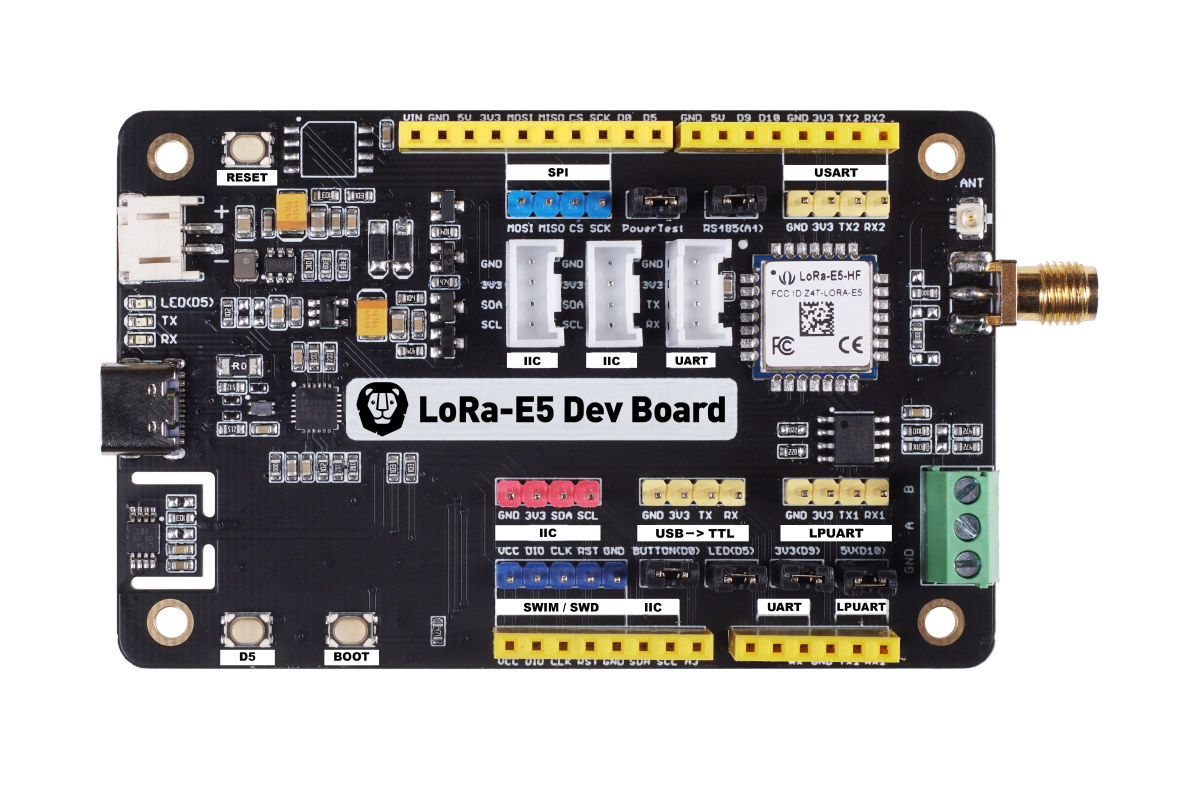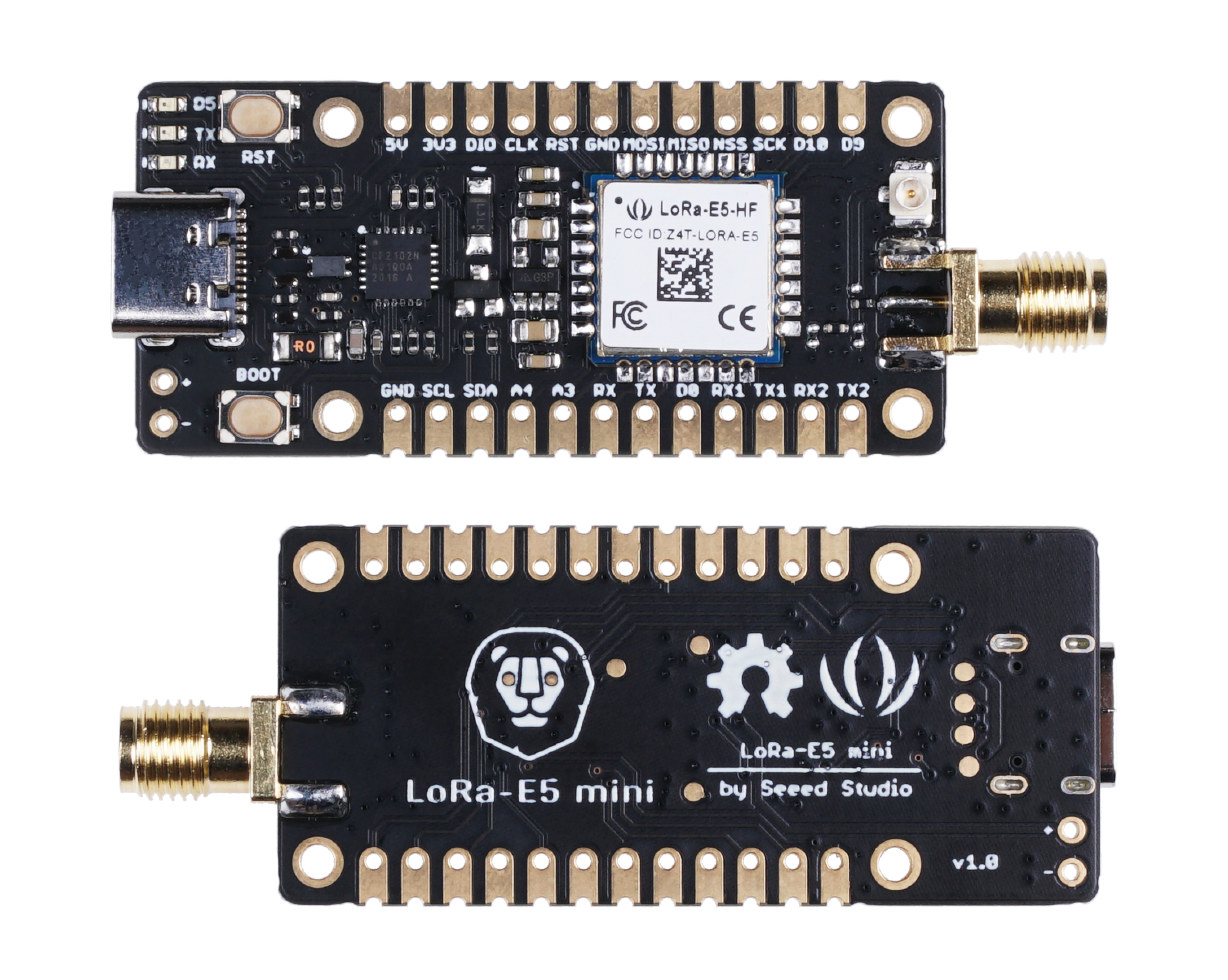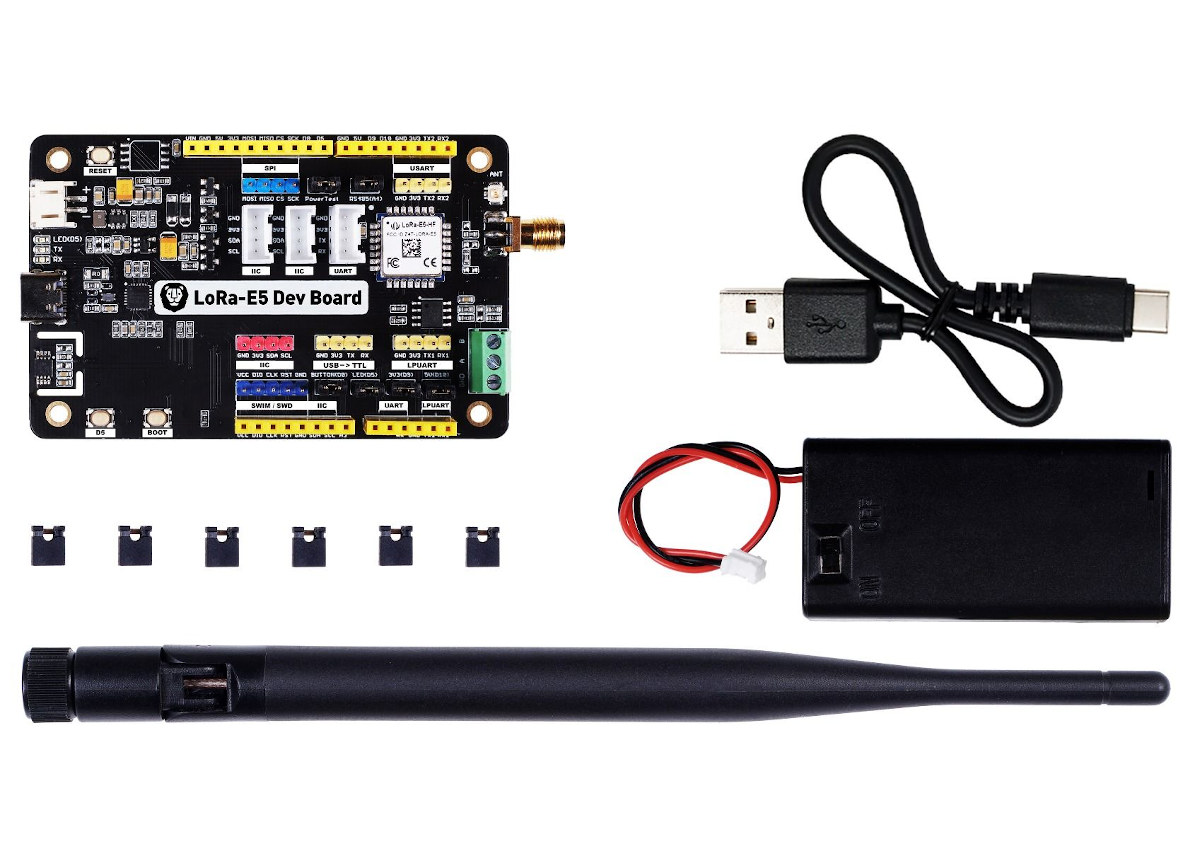The LoRa-E5 STM32WL module we covered last month can now be found in two LoRaWAN development kits from Seeed Studio with the ultra-compact LoRa-E5 mini board, and the Arduino UNO shaped LoRa-E5 board with more I/Os.
Both boards support the LoRaWAN protocol with global frequencies and can achieve a transmission range of up to 10 km with ultra-low power consumption.

- LoRa connectivity
- LoRa-E5 modules based on STM32WLE5JC SoC with Arm Cortex-M4 MCU @ 48 MHz with 256 KB flash memory, 64 KB SRAM, SX126x LoRa radio
- Modulations – LoRa, (G)FSK, (G)MSK, BPSK
- Operating frequencies – 868/915MHz (EU868, US915, AU915, AS923, KR920, IN865)
- Output power – up to +20.8 dBm at 3.3V
- Rx sensitivity – -116.5 dBm to -136 dBm
- Protocol – LoRaWAN
- SMA-K and IPEX antenna connectors
- USB – 1x USB Type-C port for power and programming
- I/Os
- LoRa-E5 mini – 2x 12-pin through-hole and castellated headers with GPIO, UART, ADC, SPI, I2C, etc.
- LoRa-E5 devboard
- Arduino headers (but not fully compatible with Arduino shields)
- 3x Grove headers (2x I2C, 1x UART)
- 3-pin RS485 terminal block
- 5x 4-pin headers for SPI, USART, I2C, USB to TTL, LPUART
- Misc – Reset and Boot buttons; LoRa-E5 devboard only: 1x user button, configuration jumpers, SWIM/SWD debug header
- Supply voltage – 5V via USB-C port or ~3.7V battery via 2-pin header (LoRa-E5 mini) or 2-pin JST connector (LoRa-E5 devboard)
- Power consumption (module) – Sleep current as low as 2.1uA (WOR mode)
- Dimensions
- LoRa-E5 mini – 50 x 23mm
- LoRa-E5 devboard – 85.6 x 54mm
- Temperature range – -40°C ~ 85°C
The boards ship as kits with an antenna (868 MHz or 915 MHz, a 20cm USB Type-C cable, and a battery holder for two AA batteries. The boards can be controlled by AT commands send over USB to a PC or over UART from another board, or alternatively develop an application with STM32Cube SDK.
LoRa-E5 mini devkit is sold for $19.90, while LoRa-E5 development kit goes for $24.90. You’ll find schematics and some documentation in the store. That’s quite cheaper than the official NUCLEO-WL55JC1 board offered for $42, but part of the price difference may be attributed to the on-board STLink V3 debugger.

Jean-Luc started CNX Software in 2010 as a part-time endeavor, before quitting his job as a software engineering manager, and starting to write daily news, and reviews full time later in 2011.
Support CNX Software! Donate via cryptocurrencies, become a Patron on Patreon, or purchase goods on Amazon or Aliexpress






